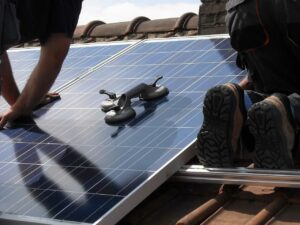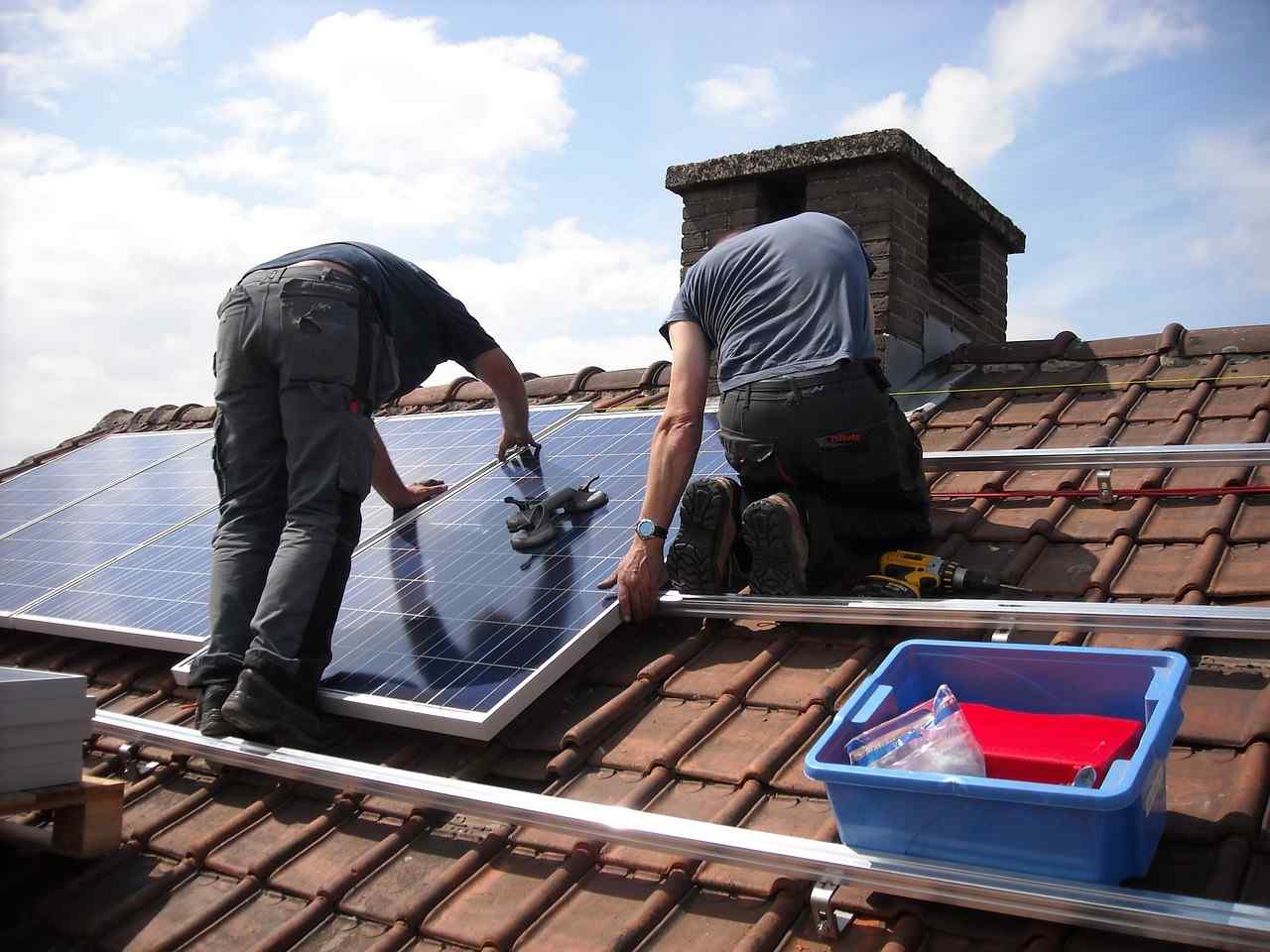Last updated on December 13th, 2023 at 12:12 pm
If you are considering installing solar panels on your home in the UK, you will want to be aware of the advantages this form of energy generation can bring you. The good news is – there are many!
Solar panels can help you save you money on your energy bills, and if you are able to generate additional electricity you can even earn money back from the grid. That is in addition to other advantages such as reducing your environmental impact and the longevity of solar panels.
Solar panel installation in the UK costs from around £5,500 up to £12,000 for residential installations (depending on how many panels you opt for, as well as other factors including the efficiency of the panels and installation costs). Therefore, with a high upfront cost, it is important to understand the benefits solar panels can bring so that more households in the UK adopt this clean form of energy.
Below, Warmable has put together some information about how solar installation could be a smart choice for you to explore for your home.
How Much Money Could I Save By Installing Solar Panels?
A key incentive for generating your own energy with solar panels is saving money on your energy bills. The cost of energy in the UK has drastically increased, therefore producing your own power could potentially help with some savings.
Firstly, your solar panels generate electricity that you can use straight away, therefore you can reduce your electricity bill from the get go. How much money you can save will depend on how many solar panels you install on your property and how much electricity your household uses.
If you are at home a lot during the day, you will get the most out of your solar panel system. On the other hand, if you mostly consume energy in the evening when the panels are not generating, you will need to use energy from the national grid and your savings will therefore be less.
A 5kW system, for instance, could save up to £1,100 annually on energy bills.
| System Size | Annual Energy Generated | Potential Savings |
| 3kW | 2,500kWh | £900 |
| 4kW | 2,850kWh | £1000 |
| 5kW | 4,500kWh | £1100 |
| 6kW | 5,500kWh | £1200 |
Secondly, the UK has a scheme called the Smart Export Guarantee (SEG) in which homes that produce enough solar energy to export back to the national grid can be paid for this. This scheme is unregulated however, so how much you can earn is set by energy companies. Ultimately, the more power you generate, the more money you can earn from the SEG scheme.
You could also consider purchasing a solar battery to store any additional power that your solar panels generate. This means you can benefit from using more of the energy your panels are producing, which works out better economically than selling back to the grid. It is important to consider however that this extra cost is likely to add a number of years onto the time it will take you to break even on your investment.
When Will I Get Return On My Investment?
There are a number of variables that affect the time it takes to pay back your solar panel investment (how much you spend on installation, how much power you generate and whether you apply for SEG payments).
There still remains a considerably long return on investment period for installing solar panels, in some cases up to 30 years. As an example:
If you have a £6,000 solar panel system installed, with SEG payments and energy savings, it will take over 10 years to get return on your investment.
As the price of solar technology continues to decrease however, this time is only going to decrease. Before committing to installation you should take time to review your energy usage and other factors including whether you are likely to sell your home before you have paid back your installation costs.
Are There Government Incentives For Solar Panel Installation?
To help make the initial upfront of cost of solar panels less daunting, there are a number of government schemes that you could be eligible for:
- Energy Company Obligation (ECO) Scheme: Receive up to £14,000 for qualifying solar panel installations in England and Wales under the ECO scheme. Criteria include a household income below £31,000/year or eligibility for specific benefits.
- Home Upgrade Grant (England): 45 local authorities offer grants up to £10,000 for home improvements, including solar panels. Qualifications include a property with an EPC rating of D, E, F, or G.
- Warmer Home Nest Scheme (Wales): The Welsh Government’s initiative provides free energy-saving improvements, including solar panels, for eligible homeowners or private renters. Eligibility is based on heating expenses, means-tested benefits or specific health conditions.
- Home Energy Scotland Grants and Loans: Access interest-free loans up to £6,000 for solar panel installations in Scotland, with potential repayment reductions for multiple energy-saving measures. Eligibility criteria include a poorly rated home or the absence of central heating for individuals over 75.

Environmental Benefits of Solar Panel Installation
A positive impact of installing solar panels is reducing your carbon footprint. Traditional energy sources, like coal and gas, release harmful gases into the air when producing electricity. Solar panels, on the other hand, harness the power of the sun without any harmful emissions. They quietly convert sunlight into electricity, providing a clean energy alternative.
Contrary to common misconceptions, solar panels operate effectively in various weather conditions, including cloudy days, therefore an additional pro point is that they are suitable for UK properties. So whether you live in Manchester, Glasgow or Nottingham, solar panels remain a viable option for your home.
Will Solar Panels Increase The Value Of My Home?
Having sustainable technology installed in your home is increasingly attractive for homebuyers, and in some cases can add up to 14% to the value of your home. However, if you are planning on selling within the next 10 years it is potentially not worth investing in solar panels, as the cost of installation is likely to be more than what they can add in property value.
You also cannot assume that installing solar panels will automatically mean your home’s value will drastically increase. The housing market in the UK can be tumultuous, and in some cases buyers have to compromise on energy efficiency of the property for other factors, not least competition for available properties.
Further Advantages: Little Maintenance and Long Longevity
Solar panels require little maintenance if you have used an expert fitter in your area. Make sure you are aware of the warranty policy of your installers and how long this is valid for. Also make sure to check that your solar panels are included in your home insurance should there be any damage caused.
Another incentive for installing solar panels is their longevity. For those who are looking for a long term investment on their energy use, solar panels can have a productive lifespan of 25 years.
After this time, your solar panels are likely to become less efficient and it is likely you will need to upgrade your solar panels so that you continue to see savings on your energy bills. For some of the most modern solar panels, companies promise up to 40 years – so it is worth shopping around for the best solar panel companies.
Furthermore, when your solar panels reach the end of their life, under EU law your solar panel installer must remove the panels from your property for free before they go on to be recycled.
Summary
The installation of solar panels is not only as a conscientious choice but as a promising investment for property owners. From the reduction in your carbon footprint to the tangible financial gains witnessed through decreased energy bills and government incentives, solar panels offer an attractive solution to your energy needs.
If you are looking for a solar panel fitter in your area, get in touch with Warmable today via our online form and we will find an expert in your area who can offer you the best quote for installation.


